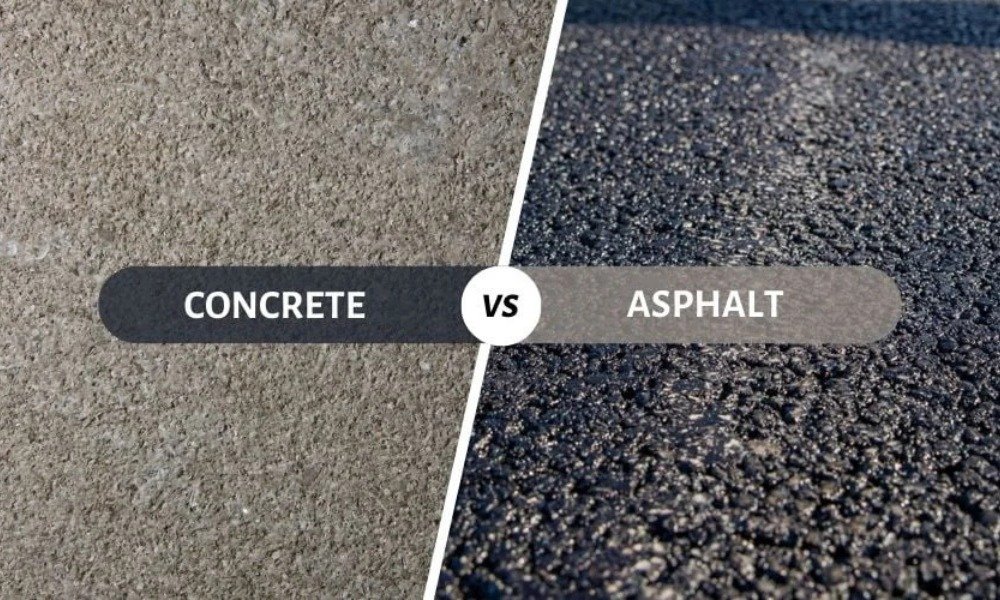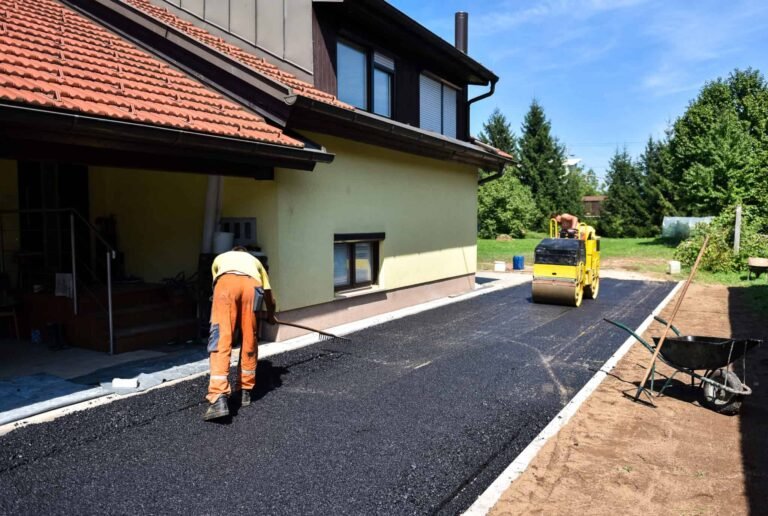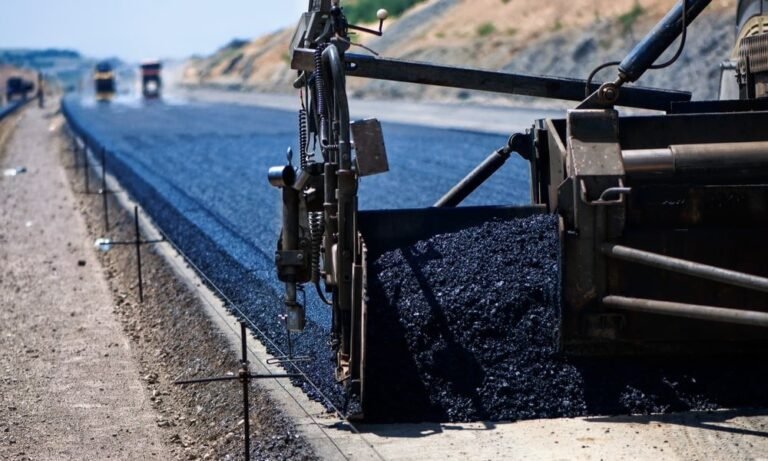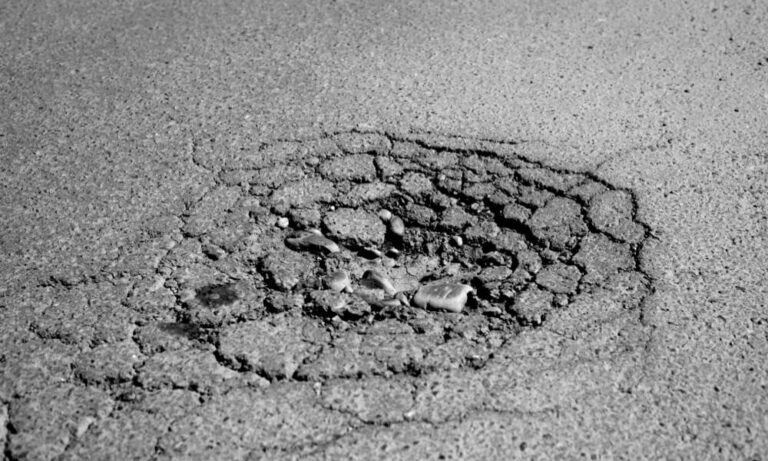Estimated reading time: 5 minutes
Choosing the right material for your driveway is no small decision. It’s the first thing guests notice when they visit, and it plays a big role in your home’s overall value and appearance. Should you go with a darker, smoother option or a more versatile, longer-lasting one? Let me help you decide by laying out the facts in a simple and clear way.
What You’ll Learn in This Article
- The key differences between these two popular driveway materials.
- Cost, maintenance, and durability comparisons.
- How climate impacts performance.
- Tips to select the best option for your needs.
- A sprinkle of humor to keep things light.
What Are They Made Of?
Let’s start with the basics. Both materials have a gravel base and include a mix of sand and stone. However, their “glue” is what sets them apart:
- Asphalt is bound with tar, giving it that familiar dark finish.
- Concrete relies on cement and water, offering a lighter, customizable appearance.
Think of asphalt as the reliable, no-nonsense option, while concrete is the artist that loves to play with colors and textures.
Which Costs More?
If budget is your top concern, the darker option wins. It’s roughly 40–50% cheaper upfront. But hold on—what you save initially might get spent later. This surface requires more frequent upkeep, which adds to its long-term costs.
On the flip side, its pricier counterpart can cost more upfront but demands far less attention over time. It’s a trade-off: spend less now or invest for the future. For a closer look at costs, see my guide on The Cost of Asphalt Paving: What Homeowners Should Know.
Maintenance: Easy or Time-Consuming?
Here’s the deal: if you’re okay with some occasional upkeep, asphalt might work for you. It needs sealing every few years to keep it looking fresh and prevent damage. Concrete, while lower maintenance, benefits from sealing as well—but it’s optional.
Stains, however, are the Achilles’ heel of cement-based surfaces. Oil drips or fuel spills are much harder to hide compared to the dark, matte finish of its counterpart. This makes the latter a more forgiving choice for messy situations.
Durability: How Long Will It Last?
Durability depends on what you’re looking for. Concrete lasts longer—up to 40 years with proper care—while the other material typically clocks in around 20 years. But the latter is easier to repair and patch. If you’re the “fix it yourself” type, this could save you some money and frustration.
Weather and Climate Considerations
Climate plays a significant role in your decision:
- In colder regions, asphalt performs well thanks to its flexibility. It resists cracking during freeze-thaw cycles better than its counterpart.
- Hot climates, however, are tricky. Asphalt can soften under extreme heat, while concrete holds up better.
Both materials have their strengths and weaknesses depending on where you live. For harsh winters, you might also want to read 7 Signs Your Asphalt Driveway Needs Repairs Now to know what to watch for.
Appearance: The Look That Matters
Concrete offers more variety. You can stamp, stain, or tint it to match your home’s style. It’s like a blank canvas waiting for your creativity.
On the other hand, asphalt is simple and sleek. Its dark tone gives it a polished, uniform look that blends with roads seamlessly. If customization isn’t a priority, this no-fuss option might be your best bet.
Installation Time: Quick vs. Slow
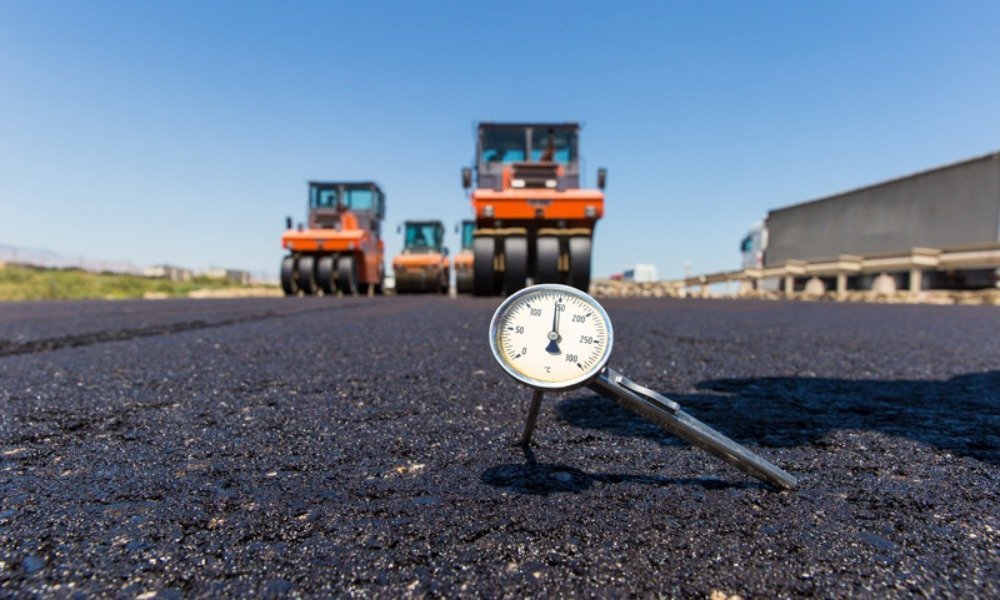
Nobody likes waiting, and asphalt delivers—it’s ready to use within hours of installation. Concrete, while durable, takes its time. Expect to wait a week or more before parking on it.
If quick access is important, asphalt gets you back on your driveway faster. And if you’re preparing for installation, my guide on How to Prepare Your Property for a Paving Installation might be helpful.
Environmental Impact
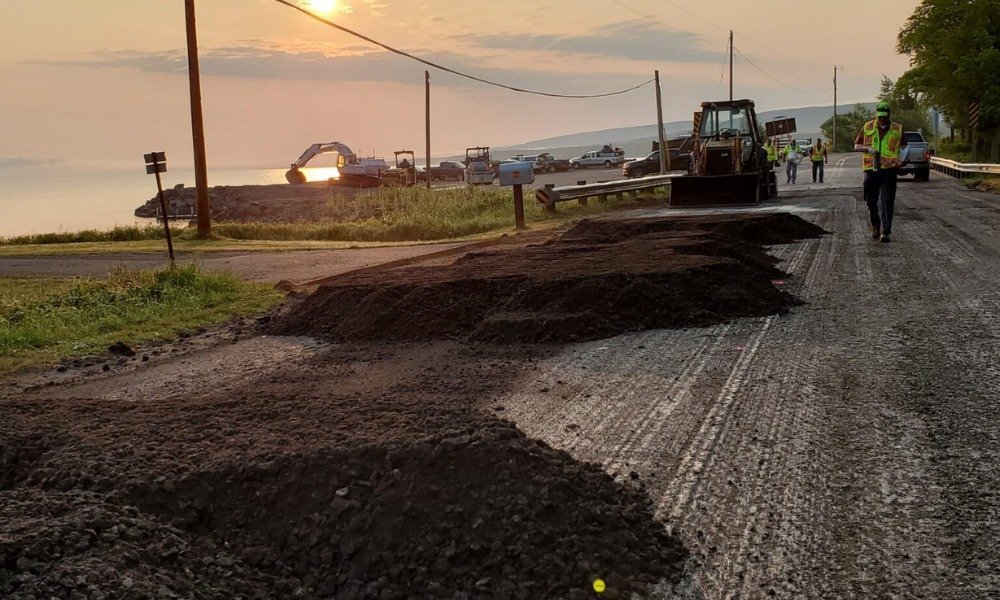
Did you know the darker material is recyclable? That’s right—most of it can be reused for new projects, making it an eco-friendly option. Concrete, while durable, has a more energy-intensive production process. So, if sustainability matters to you, this is worth considering. For more green options, check out Eco-Friendly Asphalt: Is It Right for Your Project?.
Which One Is Right for You?
Here’s the bottom line:
- Choose asphalt if you’re looking for affordability, quick installation, and easier repairs.
- Opt for concrete if durability, minimal maintenance, and design flexibility are your priorities.
Your driveway is an investment that should reflect your needs, budget, and personal taste. If you’re still on the fence, consult a professional paving contractor to get tailored advice. For guidance on finding the right expert, see How to Choose the Best Paving Contractor Near You.
Final Thoughts
Whether you pick asphalt or concrete, you’re choosing a surface that will boost your property’s curb appeal and functionality. Just remember, each has its own set of strengths, and the best choice depends on what works for your home and lifestyle.
Your driveway deserves more than just a quick decision—it deserves the one that will make you happy every time you pull up.
